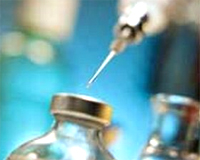Canada allows vaccination against boar taint

Swine producers in Canada will soon be able to immunise male pigs against boar taint as an alternative to castration, as the product has received marketing clearance from the Veterinary Drug Directorate of Health Canada. Animal health company Pfizer has been providing the vaccine on the Australian market for more than a decade.
It is now available in over 60 countries, including Japan, the USA and the European Union. In the European Union the vaccine is known by the name Improvac.
The vaccine is a protein that uses the pig’s own immune system to temporarily interrupt testicular function, the company says in release. “Improvest provides the same effect as physical castration but much later in the pig’s life and the effect is temporary, not permanent. This allows animals to grow with all the advantages of intact males until the second dose.”
Administering
The vaccine is administered in two doses at least four weeks apart. The first primes the immune system and the second stimulates the production of antibodies to control boar taint. Pigs are sent for slaughter four to eight weeks after the second dose.
Studies confirm that intact male pigs eat less feed and produce more meat, increasing feed efficiency by 7-10%. As well, the risks of infection or death associated with the removal of testicles are eliminated, decreasing mortality by 1.5%.
Carbon footprint
Because intact male pigs eat less feed and produce more pork, there is potential for a reduction in the carbon footprint by as much as 3.6% (measured in CO2 equivalents per kg of pig liveweight) versus barrows. Animal welfare concerns have also been raised over the practice of castrating newborn male piglets without providing pain relief.
“Improvest creates an opportunity to capture more value from male pigs,” says Peter van Vloten, spokesman for the animal health company. “Male pigs are given Improvest later in the finishing phase to manage boar taint as well as male behaviour, so they’re able to grow to their full potential more efficiently.”
Pilot projects
The company will begin pilot projects with the vaccine with a number of swine veterinarians, their pork-producing clients and packers across the country. Farms from a cross-section of different production models will be selected to fine-tune the vaccine’s compliance process.
“The purpose of a gradual introduction through pilot projects is to ensure a co-ordinated food chain effort,” the company says, adding that it “will work with veterinarians and their producer clients to help them adopt best practices and new nutritional guidelines to maximize the benefits from Improvest in different types of production systems and with different genetic lines.”
Related website:
• Pfizer Animal Health











